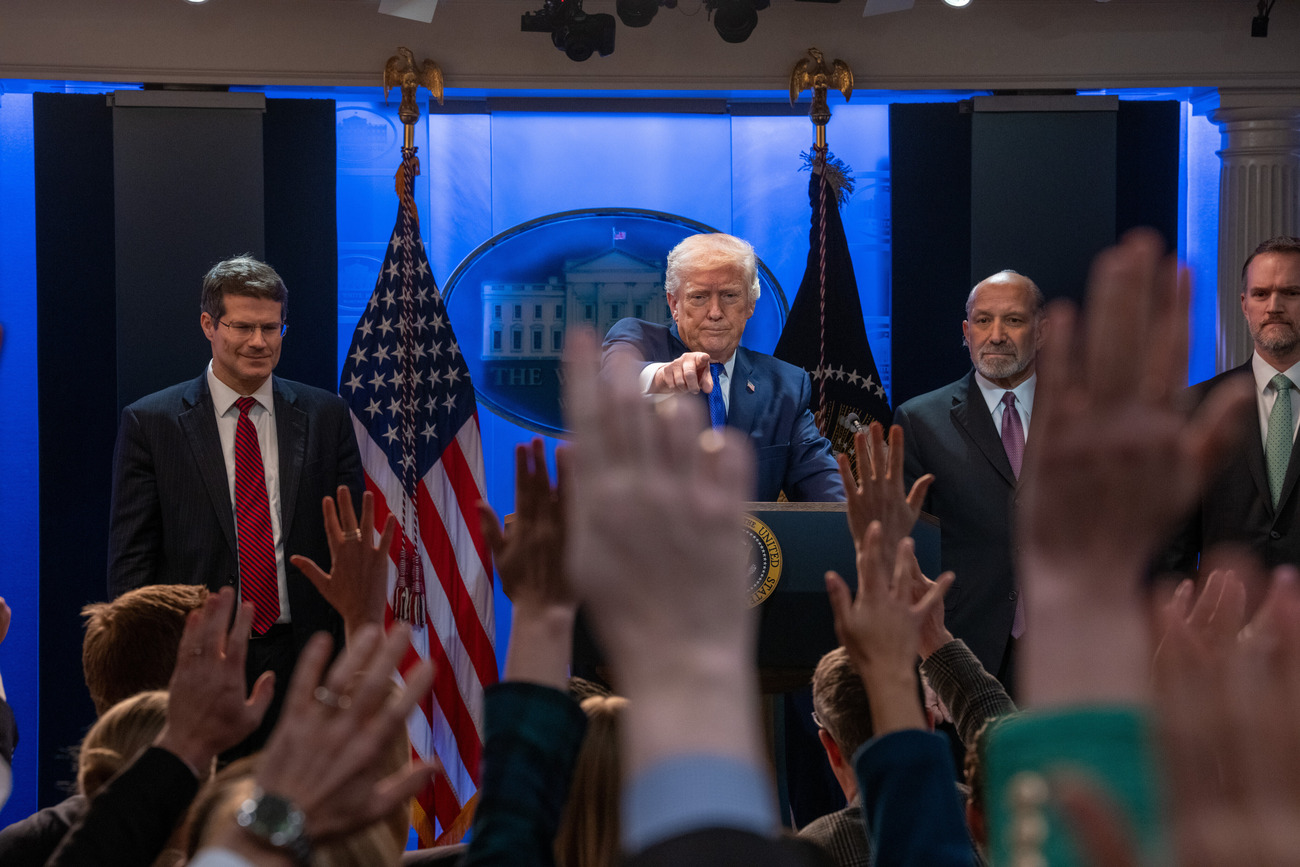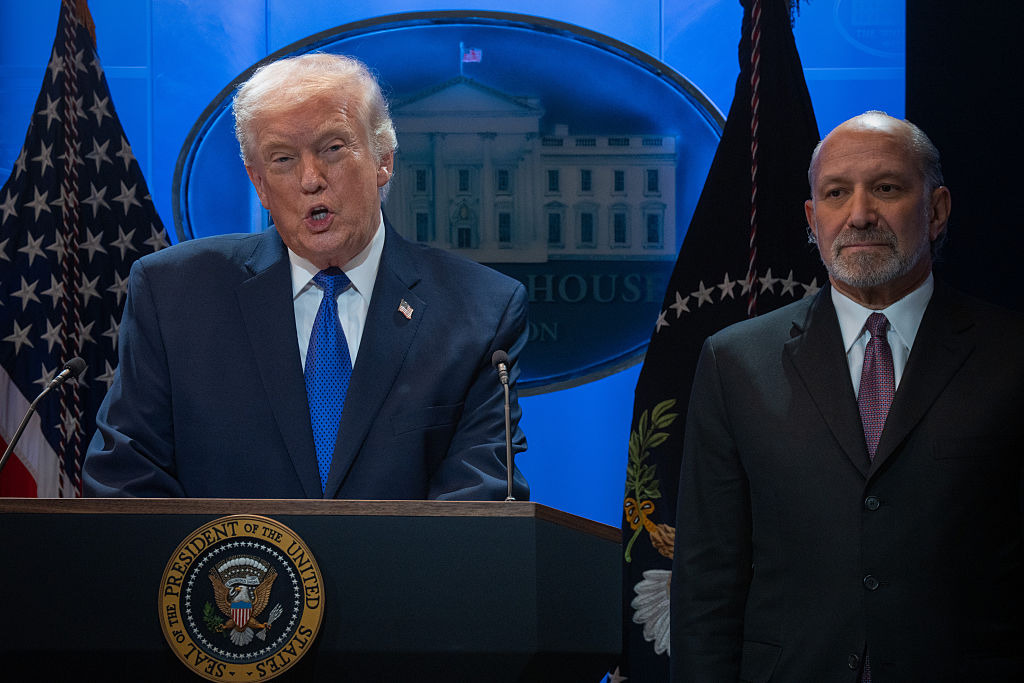Catalyzing Economic Growth in Latin America
Catalyzing Economic Growth in Latin America
Council of the Americas and the Millennium Challenge Corporation held a panel discussion with representatives from the U.S. government and the private sector to share experiences, challenges, and lessons learned to promote trade and development for aid effectiveness in Latin America.
Speakers
- Patrick Fine, Vice President, Compact Operations, Millennium Challenge Corporation
- Jose Fernandez, Assistant Secretary, Bureau of Economic, Energy, and Business Affairs, Department of State
- Jonathan Brooks, Managing Director for Europe, Asia/Pacific, and Latin America, Department of Compact Operations, Millennium Challenge Corporation
- Lawrence Rubey, Director, Office of Regional Sustainable Development, Bureau for Latin America and the Caribbean, U.S. Agency for International Development
- Eric Farnsworth, Vice President, Council of the Americas
Summary
As top foreign aid officials prepare to meet in Busan, South Korea in late November at the Fourth High Level Forum on Aid Effectiveness, Council of the Americas hosted an event with Millennium Challenge Corporation (MCC) to discuss the linkages between foreign aid, private sector development, and economic growth in Latin America. The speakers addressed the ways in which the U.S. government has promoted private sector development in Latin America through recipient-country-led partnerships that prioritize quantifiable results and transparency.
Private Sector Development for Sustainable Economic Growth in Latin America
Throughout the event, speakers reiterated that a robust private sector is paramount for sustainable economic growth in Latin America. Maintaining the strong growth of the last decade requires continuing to promote the private sector and exploring the ways it can help address the fundamental issues the region faces. As a source of job creation, the private sector has implications for a broad range of issues, including economic development, civilian security, and social inclusion. A weak private sector and few employment opportunities have produced the current youth bubble in the region, leading young people to turn to criminal activity or emigrate to the United States. According to USAID’s Director of the Office of Regional Sustainable Development for Latin America and the Caribbean Lawrence Rubey, a lack of citizen security contributes to high levels of business extortion and further hampers economic growth, especially in Mexico and Central America.
Assistant Secretary of State for Economic, Energy, and Business Affairs Jose Fernandez also explained that Latin American economic growth is of great interest to the United States. Over 41 percent of Latin America exports are sent to the United States, and 42 percent of U.S. exports are destined for Latin America and Canada. COA Vice President Eric Farnsworth took the conversation a step further, adding that such strong business relationships make it clear that aid for Latin American private sector development should be a priority for the United States, even in the wake of reduced resources in Washington.
Public-Private Partnerships
Among the obstacles to economic development in Latin America is deep mistrust between the public and private sectors, MCC’s Managing Director for Europe, Asia, Pacific, and Latin America Jonathan Brooks explained. Fostering public-private dialogues and long-term partnerships creates a space for transparent, rules-based collaboration between the sectors, allowing them to jointly promote economic growth. Brooks gave the example of a council of top Salvadoran businessmen, founded to promote dialogue between sectors and provide recommendations directly to Salvadoran President Mauricio Funes.
Assistant Secretary Fernandez and Brooks both emphasized the need for the recipient countries to take ownership of their development by giving direction to aid initiatives. Economic growth allows countries greater control over development through independent financing. However, one of the biggest challenges for Latin American governments today is public revenues, particularly from taxes and tariffs. Latin America has historically relied on tariff revenues for government funds, but free-trade agreements have reduced those resources and spurred changes in tax systems to boost collection rates. As governments find more resources at their disposal, they can better finance their own development, diminishing reliance on foreign aid.
Expanding Private Sector Opportunities: Supply Chain Integration and Expansion of Credit
Partnering with the private sector expands opportunities for ordinary citizens. Supply chain integration, for example, is not only an important step towards private sector development, but also towards social inclusion. A recent MCC program in northern El Salvador successfully helped local farmers sell their produce directly to major supermarket chains, bypassing middlemen and large wholesalers extracting a cut of the profits. As opposed to local markets dependent on the whims of nearby residents, supermarkets offer consistent sales opportunities to smallholder farmers, who now receive a steady stream of income.
In Honduras, access to credit increased through the development of the Secured Transactions Law and the creation of a movable property registry. Currently operated by the Chamber of Commerce in Tegucigalpa, the registry allows individuals and small businesses to use non-real estate property as collateral for loans and has become a model for credit expansion in Central America and the Caribbean.








